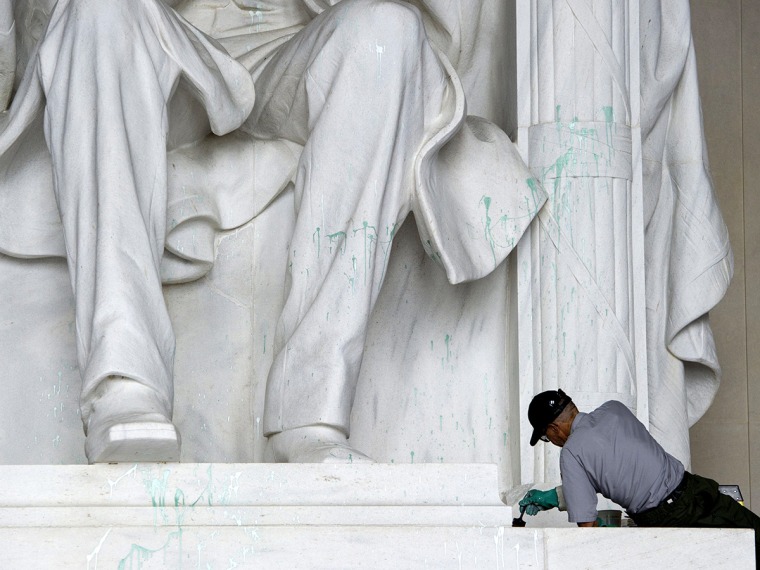In the event of a government shutdown, the first thing Elizabeth Ashack will do is apply for unemployment benefits.
"I'm the breadwinner because my spouse is in college," she told MSNBC on Monday, just hours before the deadline to avert a government shutdown. "We don't have a lot of extra money to play around with."
Right now, Ashack is an economist for the Labor Department's Bureau of Labor Statistics. But if the government shuts down, she and hundreds of other federal employees will be indefinitely furloughed without pay. Furloughed government employees will qualify for unemployment benefits, but otherwise they'll be on their own. Meanwhile, the people actually responsible for the shutdown—members of Congress—will continue to draw their $174,000 annual salary.
"I'm very upset today," said Ashack. "I was scrambling around today trying to get all the money in the credit union. It's really sad what's happened in our country, and there's a total disregard for federal workers."
While economists like Ashack are typically paid around $110,000 per year according to the Bureau of Labor Statistics, the ranks of non-essential government employees include many who are earning far less. The thousands of government employees working as food servers, mail clerks, switchboard operators, and tour guides all make under $35,000 annually; they too can expect to lose their paychecks, though some of them may be asked to continue working.
"Most of our members make between $35,000 and $40,000 a year," said J. David Cox, president of the American Federation of Government Employees, the nation's largest federal employee union. "That is not over-bloated, that is not overpaid and ridiculous, that is people who are struggling to buy food and keep a roof over their head."
The government has not said for sure how many people would be furloughed, but the number could rise above 800,000 workers, with an additional two million "essential" workers expected to remain on the job. Workers deemed essential are guaranteed back pay.
Following prior government shutdowns, Congress has always mandated retroactive pay for non-essential furloughed workers. But this time around, there's no guarantee a measure authorizing government worker back pay could make it through both the House and Senate.
"I don't think that's a guaranteed issue at this time," said Cox. "This is a totally different Congress."
Federal employees have already had their pay frozen for the past three years. In addition, many of them have been furloughed without pay or received a salary cut as their employers have struggled to adjust to across-the-board sequestration cuts. For federal employee unions, the threat of a shutdown has only added to the sense that their members are under attack.
“This is a workforce which has endured three years of a pay freeze; there has been virtually no hiring, so workloads are increasing dramatically; many already have faced unpaid days because of sequestration; and now they face more unpaid furloughs because of a shutdown that does not need to happen," said Colleen Kelley, president of the National Treasury Employees Union, in a statement.
The shutdown could also adversely affect millions of people who work for federally contracted private companies. Last week, a spokesperson for the Smithsonian Institute told MSNBC that the private companies which manage Smithsonian museum restaurants would have to decide what to do with their employees in the event of a shutdown.
Furloughed workers may act as a drag on the broader economy, as they would cease to be economically productive and consume less in order to conserve resources. A three-to-four week long shutdown could shrink GDP by 1.4%, according to Mark Zandi of Moody's Analytics. Analysts believe a longer shutdown could drag the U.S. economy back into recession.
